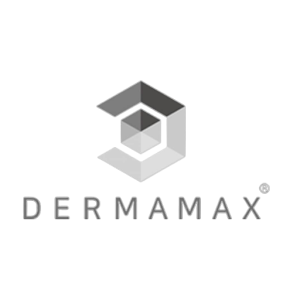Skin care and health during pregnancy
The gradual growth of the fetus and waiting for the birth of the baby is very exciting and joyful. Pregnant women, along with the excitement and understanding of the feeling of motherhood, should pay attention to the comprehensive care of themselves and their growing fetus, in order to get through this period in good health.
The lifestyle of pregnant women undergoes countless changes during this period; From giving up intense sports activities to being careful in buying food.
During this period, with the new growth, the mother’s body undergoes changes from the inside and outside. One of these things is the change in the level of hormones in the body, which leads to pimples, spots and melasma on the skin.
If you have had a fixed routine for your skin care before this period; With the beginning of pregnancy, carefully check the ingredients of the products you used in your routine.
Due to the fact that cosmetic products are directly related to the mother’s skin, they can easily affect the fetus through the blood. Therefore, make sure that their ingredients are safe before buying or using them.
In the following, we will take care of the skin during pregnancy and learn about harmful compounds and useful foods.
Skin changes during pregnancy
One of the positive changes that occur on the skin during pregnancy is the “shine of the skin” which occurs due to the increase in the level of hormones. But this is only a small change on the skin. During pregnancy, you may experience the following:
Melasma:
Melasma is a type of skin tissue discoloration that occurs during pregnancy and may last until after. To prevent melasma, pregnant women should use sunscreen, hats and glasses as much as possible to protect the skin from the harmful rays of the sun.
Stretch marks:
90% of pregnant women have stretch marks before giving birth, which is one of the most common skin changes. Hormonal changes and the growth of the fetus inside the abdomen are the causes of stretch marks.
Stretch marks will fade over time, but to prevent them from worsening, use body oil or body cream regularly.
Mole:
If you notice a change in the color and size of moles during pregnancy, be sure to see a doctor, especially if cancer is hereditary in your family.
meat mole:
These moles are non-cancerous, so don’t worry. But due to their fleshy nature, they are sometimes annoying due to friction with clothes.
Excess skin fat
Pregnant women may suffer from severe acne due to the production of excess skin oil before giving birth.
Skin care concerns during pregnancy
The best way to take care of the skin during pregnancy is to be fully aware of skin changes. By following some tips and having enough information, you can take good care of your skin during pregnancy. Having healthy and flawless skin is one of the main concerns of pregnant women. First of all, accept that some of these changes are normal and will fade over time and happen to most pregnant women. During this period, you must take the utmost care of yourself.
Products that come into contact with the mother’s skin can affect the growth and development of the fetus through blood flow. So choosing suitable and safe products is a priority.
During this period, the skin of pregnant women becomes more sensitive and may react to the smallest change. Therefore, avoid spraying perfume on the body and using new products that cause allergies.
Harmful compounds during pregnancy
A series of compounds that are used in most skin care products to treat skin problems are considered risky for pregnant women. In the following, we introduce some of these compounds.
Retinoid:
Vitamin A is a vital nutrient for the body that promotes healthy skin, strengthening the immune system and eyesight. After taking it orally or absorbing it through the skin, vitamin A is converted into retinol in the body.
Retinoid is a type of retinol that is usually used in anti-aging and anti-aging products. In anti-wrinkle products, it reduces facial wrinkles, and in anti-pimple products, it stimulates the production of collagen and removes acne by exfoliating the surface cells of the skin.
According to the research done in animal samples, low dose of retinoid causes birth defects of the fetus. For this reason, the use of prescription drugs such as tretinoin and accutane, which have a higher dose of retinoid; Also, over-the-counter creams and serums containing this substance are prohibited during this period.
Salicylic acid:
One of the most common and effective compounds for acne treatment is salicylic acid. The use of this substance is not recommended during pregnancy due to its high exfoliation and anti-inflammatory properties. Of course, opinions differ on this matter; But caution is always a condition of wisdom, so we recommend that you wait until the birth of your beloved child.
Hydroquinone:
Hydroquinone is a prescription product to lighten the skin or reduce skin pigmentation during pregnancy caused by melasma or chloasma. There is no valid research to link birth defects and side effects of hydroquinone, but due to the 25-30% rate of absorption of hydroquinone into the skin compared to other compounds, it is better not to use products containing hydroquinone during pregnancy.
Parabens:
Paraben is a type of preservative that is used in most cosmetic products. But nowadays, many brands have removed this compound from their products due to the proof of its countless harms. Therefore, pregnant women should also use paraben-free products.
Phthalates:
Phthalates are chemicals that disrupt the exocrine glands. Nevertheless, these compounds are used in most cosmetic products. There are few studies on humans for the side effects of this substance. However, we are only satisfied with the fact that phthalates change the level of hormones, and we recommend that pregnant women do not use products containing phthalates.
Formaldehyde:
Formaldehyde was used in the past as a preservative and disinfectant in cosmetic products. But today it has been proven to be carcinogenic. In addition, formaldehyde increases the risk of miscarriage and infertility.
Chemicals that have similar risks to formaldehyde during pregnancy include the following:
Bronopol
DMDM hydantoin
diazolidinyl urea
hydroxymethylglycinate
Imidazolidinyl urea
quaternium-15
5-bromo-5-nitro-1,3-dioxane
Chemical sunscreens:
Are all chemical sunscreens harmful to pregnant women? The answer to this question completely depends on the compounds and filters used in sunscreens. There is a fundamental difference between sunscreen with a chemical filter and sunscreen with a physical (mineral) filter.
Sunscreens with chemical filters absorb the sun’s harmful rays, but sunscreens with physical filters reflect UV rays like a mirror. For this reason, sunscreens that have harmful chemical filters are likely to harm the fetus. But keep in mind that this does not apply to sunscreens that have a safety chemical filter.
For example ,Oxybenzone is one of the most widely used chemical filters in sunscreens, which is used to protect the skin from the harmful rays of the sun (UV). But today, it has been proven that this type of chemical filter and its derivatives cause dysfunction of the exocrine glands. This harmful chemical filter for women during pregnancy causes hormonal disorder and damage to the fetus.
Another harmful chemical filter that has irreparable damage even before pregnancy is avobenzene; It has been proven to be carcinogenic.
Injections of fillers and botox, laser and aggressive methods of spot treatment such as microdermabrasion and strong exfoliating masks are among the factors that women should avoid during pregnancy.
What products can pregnant women use?
Exacerbation of skin changes is normal for pregnant women. During pregnancy, women can use harmless ingredients to control acne, skin spots and stretch marks, which are the most common skin changes, to maintain the health of the fetus and the freshness of their skin.
Acne and skin spots
Don’t be surprised if you face pimples like pubertal pimples or small and pale spots on your face during pregnancy. During this period, instead of using retinoid or salicylic acid based products, pregnant women can use one of the most effective compounds called “glycolic acid”.
Excessive use of any product is not recommended for pregnant women, but low consumption of glycolic acid and similar products such as azelaic acid can help reduce fine lines, lighten skin, and reduce skin pigmentation.
Collagen production
You can continue the process of skin rejuvenation during pregnancy by using topical antioxidants such as vitamin C.
In addition to strengthening the body’s immune system and eliminating free radicals in the body, vitamin C can increase collagen production and rejuvenate the skin.
Pregnant women can also use other safe antioxidants:
Vitamin E
Vitamin K
Vitamin B3
Green tea
Dry skin and cracks
During pregnancy, interstitial water decreases sharply; which, in addition to hormonal changes, causes dry skin.
During this period, pregnant women can prevent body water evaporation by drinking water and using moisturizing and hydrating creams.
One of the ways to prevent stretch marks is to use body oil or cream.
Protection from harmful sun rays
As you know, the use of sunscreen starts six months after birth and continues until old age. Pregnant women should be more sensitive in using sunscreen to prevent skin spots and wrinkles.
Sunscreens that have safe chemical or physical filters are no different, we only emphasize regular and continuous use of sunscreen cream.
In addition, you can use a hat or glasses to protect the skin more.
Skin care routine for pregnant women
One of the concerns of pregnant women is how to organize their skin routine. So far, you know what ingredients are harmful to you during pregnancy and you should avoid them and what products you can replace to have smooth skin.
First, wash your face with a mild cleanser with lukewarm water.
Choose the right toner for your skin that has moisturizing and hydrating properties. (Pregnant women should not use toners containing salicylic acid.)
Use moisturizers and night creams that do not contain comedogenic and allergenic ingredients.
Use sunscreens that protect the skin from both the sun’s harmful rays (UVA and UVB) and have at least SPF 30.
Most eye creams have safer ingredients. You can use eye creams that have more moisturizing properties.
You can use body creams and oils to prevent stretch marks.
For the night routine, you can use skin serums that do not contain harmful ingredients; use.
Healthy eating during pregnancy
During pregnancy, one of the most important things that pregnant women should pay attention to is healthy eating. During pregnancy, certain foods such as iron, protein, folic acid, iodine and calcium should be present in your diet. Healthy nutrition during pregnancy helps maintain the health of the mother and fetus.
Experts call it a healthy diet, which includes all the necessary nutrients. So, during pregnancy, you should follow a healthy eating pattern and observe the following in your diet:
Use a variety of vegetables, fruits, grains, low-fat dairy and protein foods.
Use foods and drinks that are low in sugar and saturated fat.
Grains and refined starches that are found in foods such as cookies, white bread and snacks; Minimize.
For a snack, you can use Wholemeal toast and cereals.
final word…
Changing the lifestyle and following some tips during pregnancy is not an easy task, using some products that are based on retinoid and salicylic acid during pregnancy can cause damage to the fetus, so pregnant women can replace some other compounds.
A growing fetus needs nutrients found in vegetables, grains and proteins, but sometimes, according to a doctor’s diagnosis, pregnant women need folic acid and some supplements in addition to diet.
We hope that reading this article will help you get through a pleasant nine-month period with extensive changes. We look forward to reading your messages.



Leave a Reply
Want to join the discussion?Feel free to contribute!